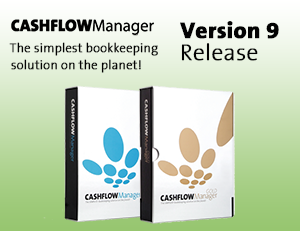Receivables Management – Improving Cash Flow in Your Small Business
Late payments and outstanding accounts receivable have been named the most common causes of cash flow crises in the UK.
Businesses in the UK are growing more and more concerned about their cash flow over recent years. A survey by Santander Corporate & Commercial reveals that almost one in six UK small businesses say they are ‘very’ concerned about managing cash flow effectively over the next 12 months, with a further 27 per cent saying they are ‘quite’ concerned.
So how can small businesses manage their credit better and avoid falling into a cycle of poor cash flow?
Let’s get back to basics with 5 steps to help you get paid on time and manage cash flow effectively.
Set out your terms and conditions
When you enter into a new relationship with a customer, make sure they know your conditions for providing credit. It needs to be a concise document, which outlines the payment terms. Make sure you have written acceptance from the customer of your terms and conditions.
Get to know who you are dealing with
Make filling in a credit application form part of your process for giving credit to customers. That way you can get all the necessary information like their place of business and name of the contact person. It is also a good idea to get references from other suppliers to determine the customer’s ability to pay on time.
Keep good financial records
This includes making sure you are keep track of all invoices and payments made by customers. A simple bookkeeping program can be very helpful as it can help you to generate invoices, and also list and track any invoices that may be overdue.
Encourage customers to pay on time
It might sound obvious, but sending out your invoice on time will help prompt your customer to pay on time, as will setting out clear consequences for late payments. An easy accounting program like Cashflow Manager can help you create invoices which can then be sent out by post or emailed, so the customer receives it straight away. Basically, the shorter the delay in invoicing, the shorter the wait to get paid.












Leave a Reply